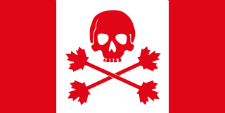Canadian ISP Bell Calls For Pirate Site Blacklist in NAFTA Hearing

In most countries, these blockades are ordered by local courts, which compel Internet providers to restrict access to certain websites.
While most ISPs initially object to such restrictions, the largest Canadian telco Bell is actively calling for such measures. In a hearing before the Standing Committee on International Trade on NAFTA, the company is clear on how online piracy should be curbed.
Rob Malcolmson, Bell’s Senior Vice-President Regulatory Affairs, mentioned that the United States has repeatedly complained about Canada’s apparent lack of copyright enforcement. To make NAFTA “work better” for Canadian culture in the digital economy, stronger enforcement is crucial.
“US interests have long complained that widespread online copyright infringement here in Canada is limiting the growth of the digital economy. In fact, many of the most prominent global players in the piracy ecosystem operate out of Canada as a relative safe harbor,” Malcolmson said.
“We recommend that the Government commits to stronger intellectual property enforcement by having an administrative agency dedicated to such enforcement and by prioritizing enforcement against digital pirates.”
In Bell’s view, all Canadian Internet providers should be required to block access to the most egregious pirate sites, without intervention from the courts.
“We would like to see measures put in place whereby all Internet service providers are required to block consumer access to pirated websites. In our view, that is the only way to stop it,” Malcolmson said.
The telco, which is a copyright holder itself, has clearly thought the plan through. It notes that Internet providers shouldn’t be tasked with determining which sites should be blocked. This should be the job of an independent outfit. Alternatively, the Canadian telco regulator CTRC could oversee the blocking scheme.
“In our view, it would be an independent agency that would be charged with that task. You certainly would not want the ISPs acting as censors as to what content is pirate content,” Malcolmson said.
“But, surely, an independent third party agency could be formed, could create a blacklist of pirate sites, and then the ISPs would be required to block it. That is at a high level how we would see it unfolding, perhaps overseen by a regulator like the CRTC.”
In addition to website blocking, Bell also recommends criminalizing commercial copyright infringement, which would support stronger enforcement against online piracy.
Canadian law professor Micheal Geist, who picked up Bell’s controversial comments, is very critical of the recommendations. Geist says that the proposal goes above and beyond what US copyright holders have asked for.
“The Bell proposals […] suggest that the company’s position as a common carrier representing the concerns of ISPs and their subscribers is long over,” Geist writes.
“Instead, Bell’s copyright advocacy goes beyond what even some U.S. rights holders have called for, envisioning new methods of using copyright law to police the Internet with oversight from the CRTC and implementing such provisions through NAFTA.”
If the Canadian Government considers the suggestions, there is bound to be pushback from other ISPs on the blocking elements. Internet providers are generally not eager to block content without a court order.
It is also worth keeping in mind that while Bell’s plans are in part a response to criticism from US interests, American ISPs are still not required to block any pirate sites, voluntarily or not.
Source: TF, for the latest info on copyright, file-sharing, torrent sites and ANONYMOUS VPN services.



Leave a Reply
Want to join the discussion?Feel free to contribute!